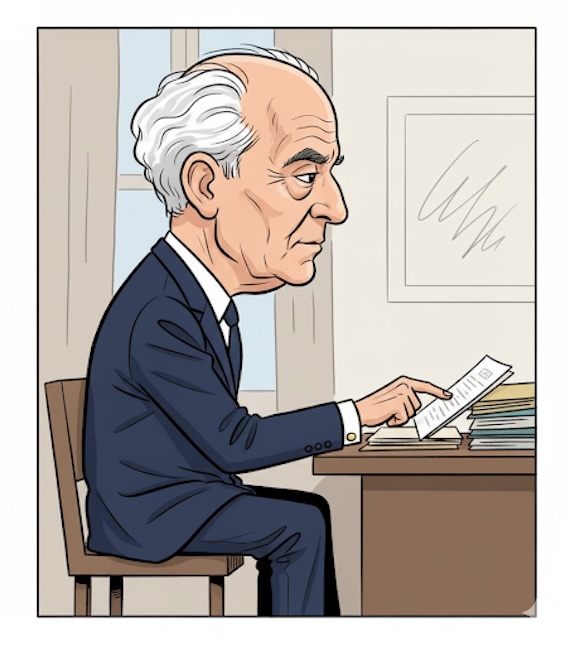( Times of Israel ) – Many people, both Jewish and non-Jewish, blame Israel for violating Jewish ethics. More erudite critics quote the Hebrew Bible, the Talmud and even codes of Jewish law to prove their point. This is a mistake. David Ben-Gurion, who directed the Zionist takeover of Palestine, answered such critics almost a century ago: “We are not yeshiva students debating the fine points of self-improvement. We are conquerors of the land facing a wall of iron, and we have to break through it.””
The Zionist leaders who created the modern State of Israel were also proud to break with the past. To quote Ben-Gurion again, “Zionism in its essence is a revolutionary movement. . . The very essence of Zionist thinking about the life of the Jewish people and Hebrew history is basically revolutionary—it is a revolt against a tradition of many centuries”. They overtly and defiantly broke with Judaism and Jewish tradition. Professor Yeshayahu Leibowitz, a professor at the Hebrew University in Jerusalem, who knew the founder of the Zionist state, concluded that “Ben-Gurion saw Judaism as the historical misfortune of the Jewish people and an obstacle to its transformation into a normal nation.”
Another common reproach is: how could the Jews who suffered massacres and expulsions in Christian Europe kill, starve and displace Palestinian civilians? As early as 1910, Vladimir Jabotinsky, future admirer of Mussolini and founder of the political party currently headed by Benjamin Netanyahu (whose father was Jabotinsky’s secretary), explained in an article tellingly titled “Homo homini lupus” (Man is a wolf to man): “We tend to invent rosy hopes, believing that a certain people has suffered much and will therefore sympathize and understand, its conscience will not allow it to offend the weak with the same offense under which it itself recently groaned. But, upon closer inspection, this turns out to be just empty words. … It is only in the Old Testament [sic] that one reads ‘Do not oppress a stranger for you were also strangers in the land of Egypt.’ In today’s morality, there is no place for this gooey humanism.” The heirs of Ben-Gurion and Jabotinsky have faithfully applied their mentors’ ideas.
The rupture that Zionism represents in Jewish continuity is well known and documented. However, people keep accusing Israel of violating Judaic principles, mistaking Zionism for Judaism. Some believe Israel’s misleading pretence to be “the Jewish state”, others view Israel as an embodiment of biblical prophecies, while many have a sentimental soft spot for Israel and feel disappointed and betrayed.
Years before the Hamas attack on October 7, 2023, which inflamed hatred of the Palestinians and led to the deaths of tens of thousands of babies and children in Gaza, two Israeli rabbis, Yitzhak Shapira and Yosef Elitzur, argued in their book that “it is reasonable to harm children if it is clear they will grow up to harm us. Under such circumstances they should be the ones targeted.” The rabbis belong to National Judaism, (dati-leumi), a relatively new form of Judaism that has taken root in Israel. This new creed, which blossomed in the wake of the Israeli victory in June 1967, defuses moral qualms and provides religious justification to Zionism.
Although only a fifth of the country’s Jewish population are followers of National Judaism, many Israelis who do not necessarily adhere to their lifestyle (whether they are secular, ultraorthodox, or traditionalist) are coalescing around their political ideology. In 2019 Bezalel Smotrich, a prominent follower of National Judaism, said, “We form the nuclear reactor that provides electric power to all the people of Israel”.
While he was certainly prescient, this energy has little to do with the Judaism that has been developed over the last two millennia. Followers of National Judaism may have more in common with those who idealistically embraced radical nationalism in Europe in the first half of the 20th century. They ended up engaging in pogroms and genocide.

“Ben Gurion,” Digital Editorial Cartoon, Gemini, 2025
Leibowitz, who died in 1994, aptly labeled the dati-leumi vigilantes terrorising Palestinians on the occupied territories as “Judeo-Nazis”. He, too, was prescient. However, the issue is not name-calling. It is acknowledging modern Israel for what it is: a mutation of vicious European ethnonationalism rather than a deplorable deviation from Judaism. Only then will the world put an end to Israel’s impunity.
Reprinted with the author’s permission from The Times of Israel

 © 2026 All Rights Reserved
© 2026 All Rights Reserved